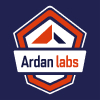June 19, 2024
Ardan Labs
From the Ardan Community
Introduction: Continue the dive into the complexities of Go’s concurrency model in this segment of the “Ultimate Software Design” series, where Bill shares essential techniques for managing GoRoutines. Here are three fresh takeaways:
Understand the critical role of maintaining proper parent-child relationships in GoRoutine operations to avoid unexpected behaviors and system failures.
Gain insights into structured techniques for terminating GoRoutines, ensuring that all child processes complete before their parent terminates, to maintain operational integrity.
Continue reading June 12, 2024
Ardan Labs
From the Ardan Community
Introduction: In this installment, Bill delves into the concept of load shedding in Go, explaining its importance in managing GoRoutines and ensuring clean shutdowns.
How to manage GoRoutines using a parent-child relationship model to prevent orphan GoRoutines.
The role of load shedding in maintaining clean and orderly shutdowns, particularly using the HTTP package in Go.
Strategies for implementing GoRoutines in Go to handle concurrent tasks efficiently without risking data corruption during shutdowns.
Continue reading June 05, 2024
Ardan Labs
From the Ardan Community
Introduction: In this detailed discussion, Bill delves into the critical aspects of networking within Kubernetes clusters, emphasizing the necessity of properly defining services to manage internal and external communication effectively.
Learn the critical role of service definitions in Kubernetes for managing internal and external communication, ensuring your Go applications are accessible and networked correctly within the cluster.
Gain insights into configuring Kubernetes environments to handle traffic routing and service discovery, which is essential for deploying scalable and maintainable Go applications.
Continue reading May 28, 2024
Ardan Labs
From the Ardan Community
Introduction: In this installment of the Ultimate Software Design series, Bill guides us through setting up a Kubernetes environment using Kubernetes inside Docker (kind). He breaks down the structure of Kubernetes and offers insights into effective cluster management, ensuring a robust and efficient development environment.
Effective Cluster Management: Learn the basics of setting up and managing a Kubernetes cluster, essential for maintaining scalable and resilient Go applications.
Pod and Node Configuration: Understand how to configure pods and nodes to optimize compute resources and ensure seamless application deployment.
Continue reading May 22, 2024
Ardan Labs
From the Ardan Community
Introduction: In this insightful episode, Bill dives deep into the realm of package design, shedding light on its crucial role in software development. Here are three key takeaways for Go developers:
Code Modularity: Learn how Go’s packaging system creates essential firewalls between program components, enhancing maintainability.
Focused Functionality: Discover the importance of designing packages that provide specific functionality, fostering code clarity.
Avoiding Pitfalls: Bill warns against common package design mistakes like centralized “common” packages, promoting a layered approach to maintainable code.
Continue reading May 20, 2024
Ardan Labs
From the Ardan Community
Introduction: Join Herbert in an insightful discussion on concurrency, where he tackles the complexities of data races and how various programming languages address them:
Understand the crucial role of recognizing data races in concurrent programming and their potential impacts.
See practical examples illustrating the chaos caused by data races and learn how Rust’s compiler prevents such issues, ensuring program stability.
Explore Rust’s unique features like null pointer avoidance and reliable error handling, which enhance safety and reliability in concurrent programming tasks.
Continue reading May 15, 2024
Ardan Labs
From the Ardan Community
Introduction: Embark on a journey into the heart of software design with the Ultimate Software Design series, where Bill navigates through the intricacies of crafting robust and maintainable code in Go.
Understand the importance of prioritizing clarity over brevity in code, fostering better understanding and collaboration among Go developers.
Learn how to ensure precision in every aspect of Go development, emphasizing the necessity for precise semantic meanings in components, functions, and variables.
Continue reading May 13, 2024
Ardan Labs
From the Ardan Community
Introduction: Delving into the intricate realm of type coercion, Herbert’s insights offer invaluable guidance for Rust developers grappling with the complexities of data type conversions:
Learn the art of clearly indicating intent in code, a crucial skill for enhancing readability and maintainability in Rust projects.
Explore Rust’s meticulous approach to data mutability, leveraging features like &mut references to uphold program integrity and prevent unintended modifications.
Discover how embracing Rust’s principles of clarity and safety empowers developers to craft robust and reliable codebases, ensuring long-term success in software development endeavors.
Continue reading May 3, 2024
Ardan Labs
From the Ardan Community
Introduction: Delving into the intricate realm of type coercion, Herbert’s insights offer invaluable guidance for Rust developers grappling with the complexities of data type conversions:
Gain insights into the nuances of type coercion, a fundamental aspect of programming languages, and its potential pitfalls, drawing parallels with numerical computation surprises.
Explore how Go and Rust tackle inadvertent type coercion, prioritizing program integrity by making it challenging to assign values between incompatible types.
Continue reading April 29, 2024
Ardan Labs
From the Ardan Community
Introduction: Delving into the critical issues of overflow and underflow, Herbert’s insights offer valuable takeaways for Rust developers:
Rust’s static analysis capabilities enable early detection and prevention of overflow and underflow errors, allowing developers to address potential issues before they manifest in runtime environments.
Through Rust’s emphasis on safety and correctness, developers can leverage built-in mechanisms to handle overflow and underflow situations gracefully, reducing the likelihood of software crashes and unexpected behavior.
Continue reading